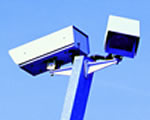 Go to main content
Go to main content
Archive Website of the UK government
Please note that this website has a UK government accesskeys system.
Main menu
Page menu
Crime and justice

Terrorism and the law

The laws explaining what terrorism is are known as the Terrorism Acts. Anybody who is involved with terrorism in any way can be prosecuted under these laws. Find out what these laws are and what they mean to you.
The counter-terrorism laws
The work done by the police and the government to prevent terrorism attacks and identify would-be terrorists is known as ‘counter-terrorism’.
The laws on counter-terrorism are mainly contained within five Acts.
These Acts are:
- The Terrorism Act 2000 (TACT)
- The Anti-terrorism, Crime and Security Act 2001 (ATCSA)
- Prevention of Terrorism Act 2005
- The Terrorism Act 2006
- The Counter-Terrorism Act 2008
These Acts explain that anybody who is involved in terrorism – however small their role – can be arrested and put into prison for those crimes.
The Acts also set out the guidelines used by police and security services when they investigate terrorist plots.
You can find out more about these laws by reading the Acts on the Home Office and Office of Public Sector Information (OPSI) websites.
Who enforces terrorism laws?
The country’s counter-terrorism laws are enforced by the police.
When suspected terrorists are arrested and charged, those cases are prosecuted by the Crown Prosecution Service.
Counter-terrorism policy is handled by the Home Office, and its Office for Security and Counter Terrorism.
The Security Service (MI5) is responsible for investigating and disrupting terrorist plots against the UK.
What are control orders?
Control orders are legal orders that limit the behaviour of people suspected of terrorism activity. They set strict rules that explain what those people can do, and when they can do it.
Control orders can, for example, ban the use of mobile phones. They can also limit access to the internet or email. They can also limit where a suspect can travel, and who they can meet.
If you are given a control order
It’s very unlikely that you will ever be given a control order, as only a handful are in place in the country at any time.
If you are given a control order, your case must be reviewed by the High Court to make sure that the order is fair.
Before a control order can be issued, the judge must agree that there is a reasonable suspicion that you have been involved in terrorism-related activity. The judge must agree that the control order is needed to protect the public.
The judge must also find that the control order does not violate your right to a fair trial.
 Facebook
Facebook Twitter
Twitter StumbleUpon
StumbleUpon Delicious
Delicious Reddit
Reddit